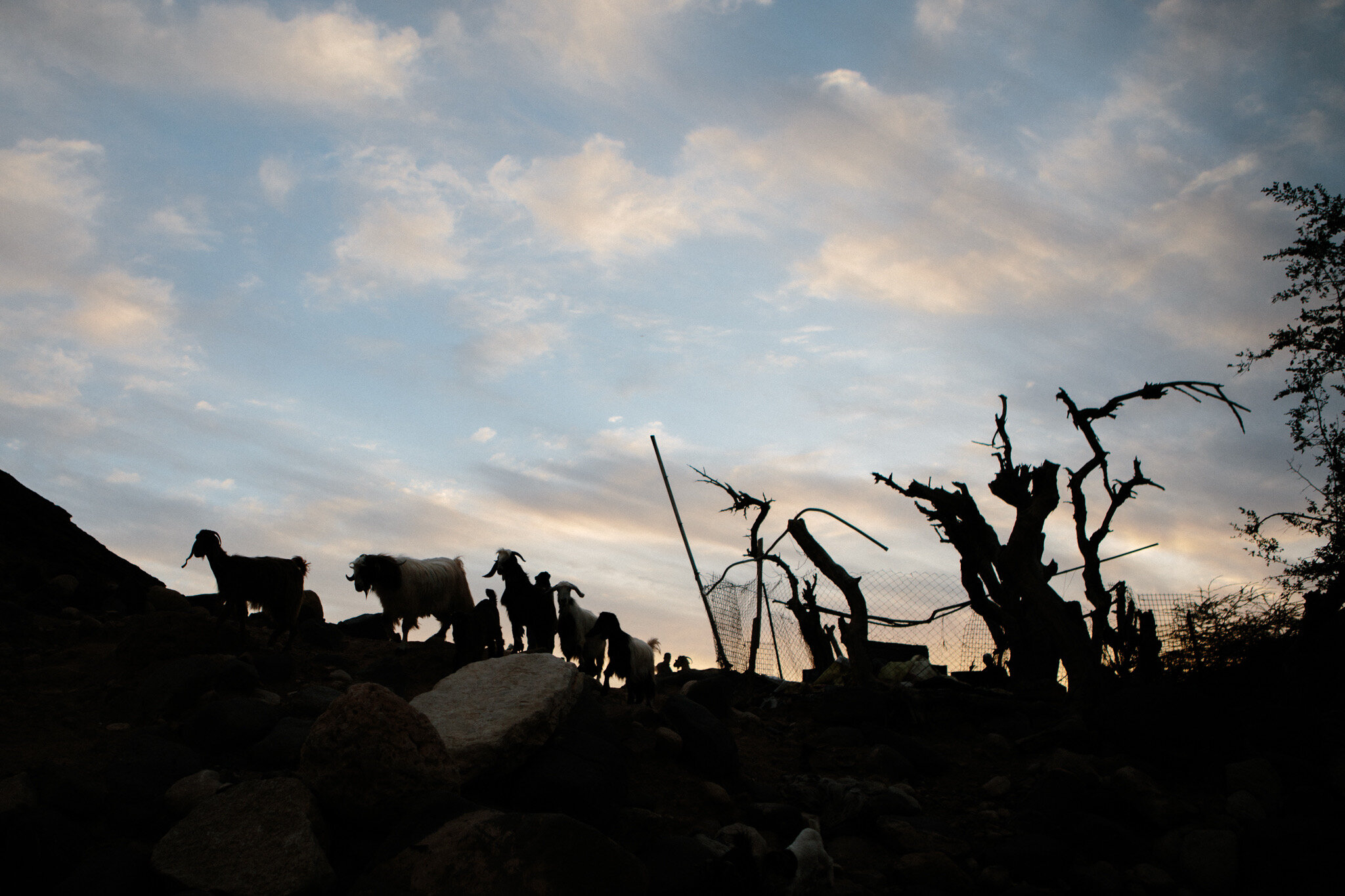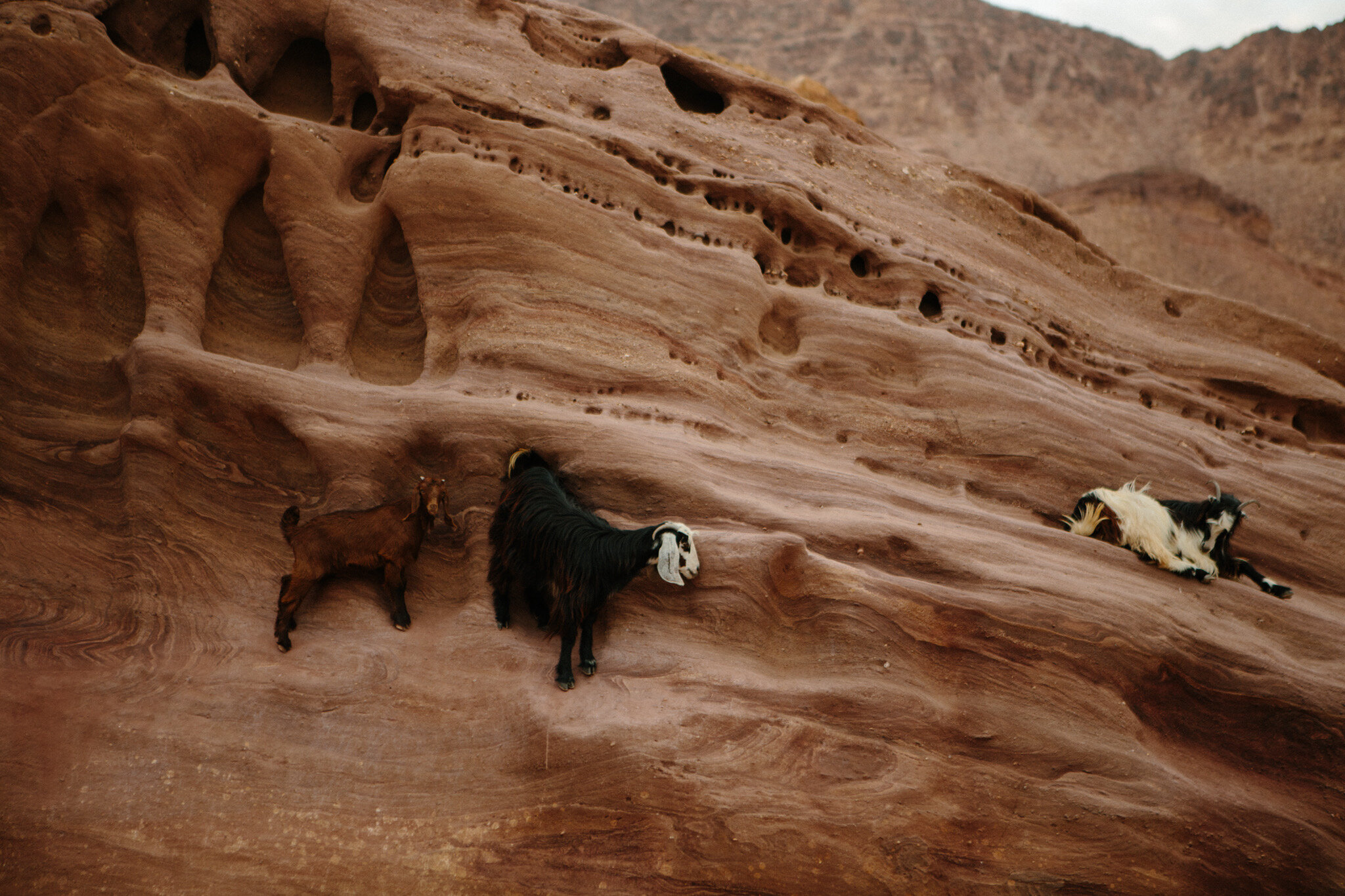Tea in Jordan's Dana Valley








The way that Emmanuel and I trudged through the Dana Valley in Jordan, you’d have thought we were climbing up a mountain at a 90 degree-incline. In reality, we were walking entirely downhill for eight miles.
I’d championed the idea, and Emmanuel went along with it. He’d sigh and say, “I can’t believe you convinced a Cuban to do this,” between long breaths. What he really meant was, “I told you this would be miserable.”
Just when the hike became not only exhausting but also monotonous, we found ourselves face to face with wild sheep. There were at least one hundred, plus a few mountain goats. Beyond the wildlife, we caught a glimpse of two men, the sheep herders.
They waved, motioning us to join them off of the path. I hesitated but followed Emmanuel as he made small talk with them. By “small talk,” I mean there was very little talking and a whole lot of pointing.
“Sheep,” Emmanuel said, motioning to the sheep.
The herders nodded. “Good.”
It is amazing, though, how much is communicable without words. They somehow asked if we wanted tea.
We sat down, while the two men began their preparations. One made a fire from dirt and sticks; the other took out a teapot and various ingredients from his bag.
I gave Emmanuel a side glance, hoping, like the Bedouins, to say as much as possible with few words. Apparently he was a master of non-verbal communication. I looked at him again, motioning with my eyes towards their stash of items.
“Emmanuel, they have cocaine!!!,” I wanted to yell. I could not believe he’d missed the small bag of white powder lying plainly in front of us.
My panic intensified, especially as the men proceeded to pour their mysterious powder into glasses.
“He must just be playing it cool,” I thought. “I’m sure we’ll make our quick departure any second.”
But to my surprise, Emmanuel took the glass and drank it.
“WHAT. Is he blind?!!” I was planning our exit.
Emmanuel passed the glass to me, and I shook my head with fervor. I finally whispered, “No!” and drew his attention towards the sketchy ingredients.
“You want it without sugar?,” he asked innocently.
I hung my head. Still skeptical, I reached for the glass, smelled it, and tasted the sweet black tea.
The herders thought it a good time to keep us entertained. One presented a flute and played the loudest, most dissonant noise possible. I could never enjoy such random notes together, but it was—quite literally—music to that man’s ears.
The situation was so strange at this point, I felt that I must actually be hallucinating. I managed to crack a joke about “falafel shawarma,” take a selfie, and exchange WhatsApp information before we said our goodbye’s.
We set out for five more deserted hours of hiking before reaching the end of the trail. At some points we found ourselves so tired that we were sure we must have been drugged after all. In the end, we figured that if we made it the whole way, it was probably just sugar.
It’s difficult to decipher when trust is earned and when fear is warranted. In the middle of an empty trail, where the only other life that exists is in the form of a sheep, I would normally be more cautious. But this moment reminded us that the world is not all bad, that sometimes people want more than just money, that it’s possible the sheep herders’ only goal was to share hot tea and an experience under the desert sun.